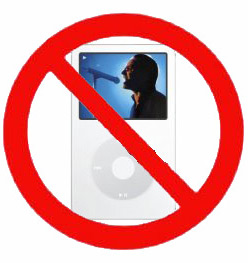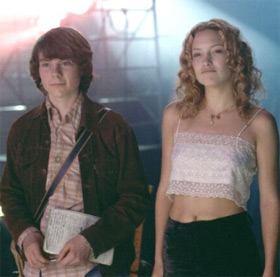Big Sound 2009: Online Publishing Panel Notes
On September 9, 2009, I moderated a discussion panel at Big Sound called ‘Blogging, Twittering and Online Publishing: Tastemaking or Time-Wasting?‘. Here’s the precis, taken from the Big Sound site:
The whole world is online! Whether you’re typing essays for eager fans or 140 character pearls of wisdom, online publishing is quickly becoming the new bastion of communication and online journalism. What is Twitter and why would you use it? How do you start a blog and why would you? Is this online thing just a waste of time? Find out how those that do it well do it and find out why those that fail miss the point.
The panel featured the input of the following gentlemen [pictured left-right; photo by Justin Edwards just before the discussion began]:
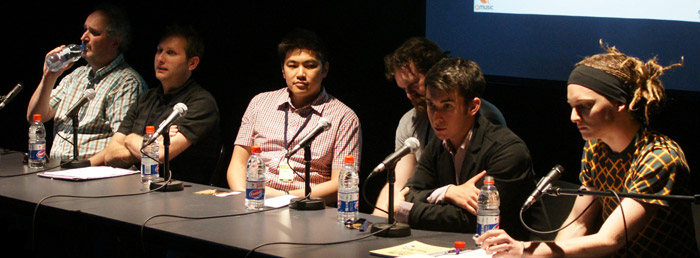
- Everett True, British music writer and blogger [everetttrue.wordpress.com]
- Jakomi Mathews, founder and editor of the British music industry analysis blog The Music Void [themusicvoid.com]
- Jerry Soer, founder and editor of the Australian music blog Who The Bloody Hell Are They? [whothehell.net]
- Cameron Smith, founder and writer of the Brisbane music blog Before Hollywood [before-hollywood.blogspot.com]
- Elliot Aronow, creative director and vice president of A&R at the free-and-legal American music blog RCRDLBL [rcrdlbl.com]
- Andrew McMillen, freelance writer for Rolling Stone, jmag, The Music Network and Mess+Noise
These were the suggested points of discussion:
- How important is blogging and online publishing in communicating with music fans?
- Is Twitter everything it’s hyped up to be?
- How can you use social networking online to promote your band and how SHOULDN’T you?
- What’s the best way to start a music blog and what does the audience want?
- What does online publishing mean for music journalism?
A couple of days before the panel – notably, after I’d put it off for a fortnight – I sent the following email to the group.
Hi gents,
In addition the points of discussion that were provided, I’m going to touch upon on the following topics.
When I have you introduce yourselves, I’m going to ask each of you:
- When did you last buy music?, and
- How do you find new music?
Online engagement for bands: how much is too much?
Reading reference: http://lefsetz.com/wordpress/index.php/archives/2009/08/14/more-imogen-heap/ and particularly this Imogen Heap quote: “About 5% of my time goes to actually making music sadly. The rest is promo, technical, planning, running around, schedules..blah”
- Artists have a range of tools and mediums with which to connect to fans; tools such as Twitter et al have lessened the gap between fan and artist. But at the same time, if their attention is focussed on the screen instead of their instruments, will their art suffer?
- Everett and Jakomi, I’ll use your experience of the pre-web era to draw comment on what it was like when you didn’t have the ability to know where your favourite bands were or what they were doing at that very instant.
- The ‘always on’ internet culture allows conversation to occur across the world instanteously. Has this removed some of the mystique that has historically attracted audiences to artists and performers? What are the implications?
Old vs new models of online promotion. Reference: http://sethgodin.typepad.com/seths_blog/2008/03/the-live-music.html
- It’s a long article, so you’re forgiven for not reading the whole thing. But Godin’s point – here, and throughout his work – is that for musicians, it’s not a matter of shouting at everyone (the old model), but of whispering at your niche (the new model).
- So instead of signing to a label who can fund mass marketing campaigns (radio, print, TV), it’s smarter for bands to work their existing audience to build it organically, while coming up with creative/interesting/share-able web campaigns to capture wider interest (eg. OK Go’s treadmill video – http://www.youtube.com/watch?v=pv5zWaTEVkI)
- Jerry and Cam, have you found this to be the case during your time as a manager and artist, respectively?
More Godin: as for messages to the fanbase from the artist, Godin suggests that these are to be ‘anticipated, personal and relevant’ in every instance. Fans should be thrilled to hear from their favourite bands, and disappointed when anticipated messages are delayed.
- This is a lovely, utopian vision, but in the real world, is it viable?
- Elliot, where do record labels sit within this vision? Is it just a matter of streamlining the process of delivering content from the band to the audience?
Beyond musicians, where do label A&R folk belong in this web discussion?
Reference: http://www.waycooljnr.com.au/2009/07/14/the-rise-of-blogranage-blog-patronage/
- Historically, A&Rs are the people who’re exposed to enormous amounts of music, and who often dictate which bands are exposed to wider audiences.
- Nick Crocker wrote: “I think A&R people at labels should start building their profiles online, developing a following and sharing their stories with fans. Inevitably, A&R people end up being hugely networked musically and build big, smart, connected networks of music lovers. They each have a market ready and waiting for their tales.”
- Everett, I know you’re comfortable with calling yourself a tastemaker. Do you agree with Nick’s idea, that A&R people should establish themselves as tastemakers? What potential benefits would music fans receive?
- Jerry, WhoTheHell.net has become a tastemaker after building an audience over several years. In your mind, what is the site’s role among music media? Would it be feasible to base a ‘new media’ music label on the WhoTheHell blog concept?
Music criticism on the web has given everyone the ability to give their opinion about what’s good and what’s shit. Reference: http://andrewmcmillen.com/2008/11/26/gareth-liddiard-on-music-writing/
- Gareth from The Drones wrote in a column for Ampersand Magazine: “Music criticism, to quote Chuck D: “You talk about it but you can’t do it.” But now that there is all this blogging shit going on critics have become like mild mannered primary school teachers trying to control their bitchy little charges. Which is funny cause nine out of ten critics are at uni. Blogging has cut the balls off music criticism. But even when critics are being cool it’s still weird. Rock’n’roll is pretty retarded and writing about it is really scraping the literary barrel. Why would you bother? Do something useful for fuck’s sake.”
- Reactions from the panel? Jakomi, what’s your take on this?
- Everett, what does this mean for established critics like yourself? I know it’s something you’ve been grappling with. (This’ll give you a chance to discuss your PhD and your findings thus far, perhaps?)
We’ve focussed heavily on discussing online publishing. But what about the role of print music journalism?
- Are print readers losing out due to the instantaneous commentary that occurs online, or does the latency/distance between the printed article allow a more measured, less hyperbolic approach?
- What about album reviews? What’s the point of the reviews we read in street press and music mags, since in many cases by the time they’re printed, the web has already aggregated, rated and reviewed these releases?
- Note that in July, Sydney street press The Brag opted to stop publishing album and live reviews due to budget quotes. (Source: http://www.messandnoise.com/discussions/1102027) In this instance, what’s the point of the mag, if they’re no longer willing to comment on the music itself?
- Cameron, which printed music publications do you read? What do you gain from them that you can’t find online?
- If print audiences are declining – and as a result, advertisers can’t justify their expenditure – where does this leave staffers of the printed article? As music fans, should we care? What do we stand to lose, other than these publications’ reputation and history?
- Everett, I’ll rely on you here, as you’ve got a history in both publishing and writing for the web.
- Jakomi, where do you see The Music Void sitting within this discussion? Why did you launch it as a website and not a magazine?
- What are the alternatives to printed music journalism? What will the music magazine of the future look like?
On the day, we discussed through most of the above, before 50-60 live human beings.
I’m told the panel was both entertaining and informative, though by session’s end I was severely doubting the latter, after spending around 90 minutes talking about blogging, which is second only to talking about tweeting in terms of tedium.
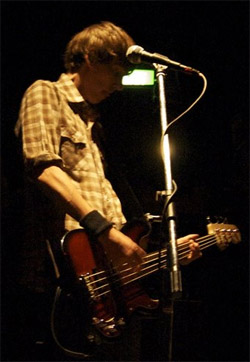 Ian Rogers of Brisbane bands No Anchor and AxxOnn [pictured right, playing live for the former] wrote this about the panel:
Ian Rogers of Brisbane bands No Anchor and AxxOnn [pictured right, playing live for the former] wrote this about the panel:
“I write about myself because no one else will. And I write about music because it’s what I like and because it’s more interesting to other people than writing about babies”. And so Everett True, former Golden God of the British Press and present Brisbane resident introduced himself to the afternoon’s delegates. The panel was about digital publishing and contained a puzzlingly configuration of quiet bloggers (“Uhm, I just like getting the free records”) and industry boffins – one preconscious, one loud and angry. And Everett. Mr True acquitted himself well post-introduction, happily making whatever comment occurred to him – more often than not correct as I read it – as the industry folks shifted around in their seats wondering, ‘Who the fuck is this weird old guy?’.
[I recommend you read Rogers’ summary of Big Sound days one and two – he’s fucking hilarious]
In all, it was an enjoyable experience that I’d happily relive. Thanks to Big Sound executive programmer Stephen Green for asking me to take part. I know the panel was filmed by the event organisers so I’ll post the transcript and/or recording when they’re available. My wider thoughts on the event are here.
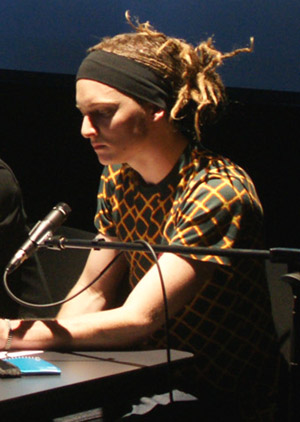 September 9-11, I attended
September 9-11, I attended 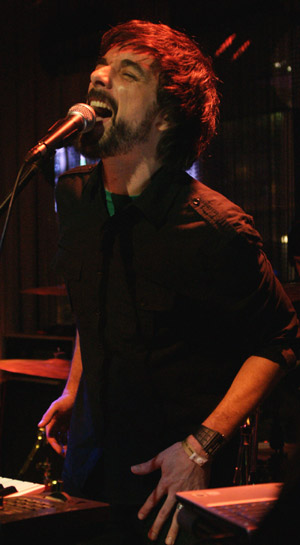 I mean, the conference is nothing without its delegates. No shit, right? I’d read this beforehand and understood it at a basic level, but it really didn’t click for me until I was there among the masses that I realised – hey, any industry is built on the people who work within it. An event like Big Sound simply enables connections between people to happen at a more rapid rate.
I mean, the conference is nothing without its delegates. No shit, right? I’d read this beforehand and understood it at a basic level, but it really didn’t click for me until I was there among the masses that I realised – hey, any industry is built on the people who work within it. An event like Big Sound simply enables connections between people to happen at a more rapid rate.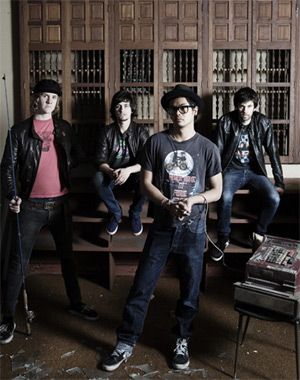 For both music fan and critic, the most exciting live music experience is the great unknown. Bearing witness to an act you’d not previously heard, but becoming completely immersed in their art. Becoming an instant convert to their cause. Becoming willing to hit the merch desk immediately after they’re done playing in order to buy something – anything! – that the band have created; to have, to hold, and to listen. Those are the kinds of performances that music critics such as myself love to write about; they’re also the kinds of performances that A&R folk spend their careers trying to witness, in order to sign and release the act’s music on behalf of their label.
For both music fan and critic, the most exciting live music experience is the great unknown. Bearing witness to an act you’d not previously heard, but becoming completely immersed in their art. Becoming an instant convert to their cause. Becoming willing to hit the merch desk immediately after they’re done playing in order to buy something – anything! – that the band have created; to have, to hold, and to listen. Those are the kinds of performances that music critics such as myself love to write about; they’re also the kinds of performances that A&R folk spend their careers trying to witness, in order to sign and release the act’s music on behalf of their label.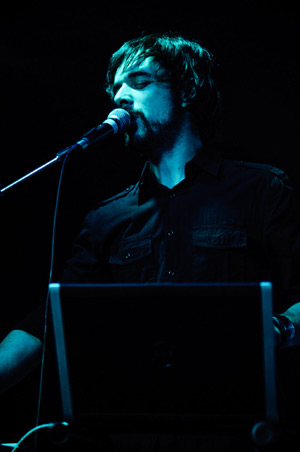 The second band were an electronic pop trio called
The second band were an electronic pop trio called 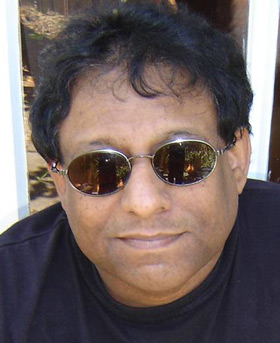 Christie Eliezer. Dude is one of the mostly widely-read music journalists in the world. Though I first heard of Christie through his weekly Australian
Christie Eliezer. Dude is one of the mostly widely-read music journalists in the world. Though I first heard of Christie through his weekly Australian 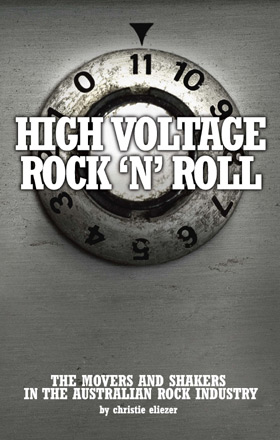 You must get sent newsworthy items for the round-up from many sources. How do you balance keeping the PR hyperbole in check in order to report on factual content?
You must get sent newsworthy items for the round-up from many sources. How do you balance keeping the PR hyperbole in check in order to report on factual content?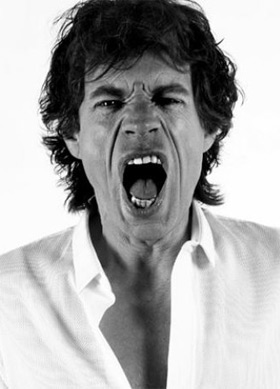 So I sent in another story. Back came another cheque. Another story. More cheques. Then the editor rang one day and asked if I wanted to interview The Rolling Stones. After that, I was hooked. Plans to become either a lawyer, a political journalist or a diplomat went out the window…
So I sent in another story. Back came another cheque. Another story. More cheques. Then the editor rang one day and asked if I wanted to interview The Rolling Stones. After that, I was hooked. Plans to become either a lawyer, a political journalist or a diplomat went out the window…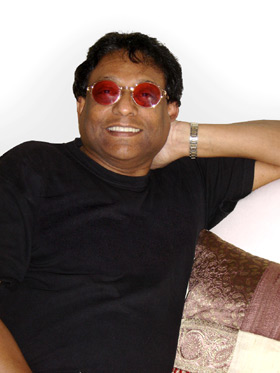 It hasn’t changed all that much. A good journalist will provide info with honesty and impartiality.
It hasn’t changed all that much. A good journalist will provide info with honesty and impartiality.